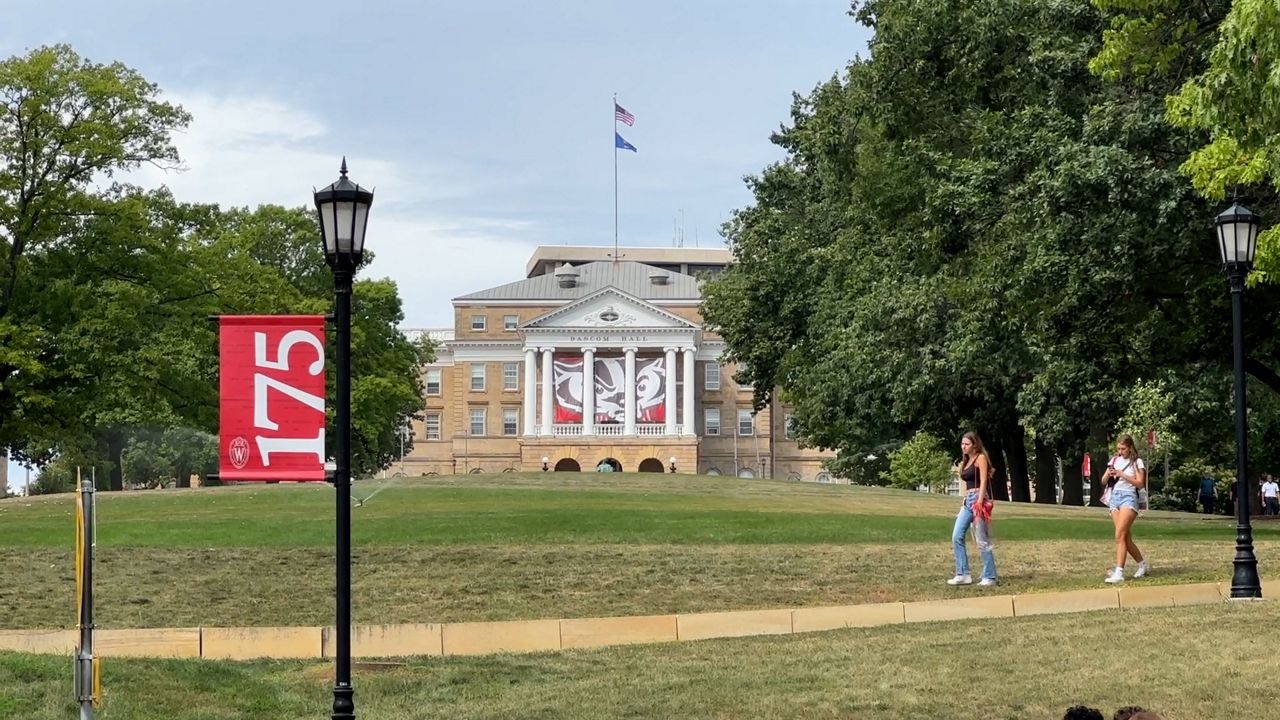MADISON, Wis. — Education researchers at the University of Wisconsin-Madison have secured a federal contract to open and operate a national center to combat growing mental health concerns in K-12 schools.
According to a UW-Madison press release, the 4-year, $10.4 million contract will support schools and their students amid growing mental health concerns.
The proposed center plans to strengthen the nation’s school-based mental health workforce by adding and assisting school psychologists, social workers, counselors and other mental health care workers.
UW-Madison’s proposal stemmed from a call for applications by the U.S. Department of Education (DoE). The Mental Health Evaluation, Training, Research and Innovation Center for Schools (METRICS) — the proposed center’s name — was the brainchild of UW-Madison faculty members Stephen Kilgus, Katie Eklund and Andy Garbacz.
“This new nationwide technical assistance center, run by the University of Wisconsin System (at UW–Madison) is an exciting step forward that will help equip education leaders with the most effective strategies for integrating mental health services in their schools,” U.S. Secretary of Education Miguel Cardona said.
METRICS will be located at the Wisconsin Center for Education Research (WCER) in Madison, Wis., but will serve schools around the U.S.
The center will prioritize the following:
- "Partner with education agencies and higher education institutions to ensure a pipeline of school-based mental health services providers from diverse backgrounds or from the communities that they serve.
- "Host communities of practice for grantees to share resources and experiences related to specific areas of grant implementation.
- "Provide training on data reporting and analyze aggregated grantee data to identify successes, challenges, exemplars, and noteworthy trends.
- "Disseminate resources, best practices, and evidence-based tools through the METRICS website and social media.
- "Provide webinars and meetings focused on evaluating programs and using evaluation data to continuously improve grant programs."
The center will support “close to 300 active grants that were awarded by the DoE for the same purpose to state education agencies, school districts and universities,” officials said in a press release.
METRICS will share best-practices resources and professional learning with the other grant recipients. Additionally, a website will give grantees online learning resources. In return, the grantees will be required to input performance data into the website for monitoring by METRICS.
“Our goal is to provide the knowledge and resources needed to expand and diversify the school mental health workforce, and to partner with grantees in collecting good outcome data,” said Kilgus, the executive director of METRICS. “High quality information will allow federal officials to evaluate the return on their investment.”
The nearly 300 federal grants total more than $188 million in funding to address rising mental health concerns.
According to the UW-Madison press release, “70% of public schools are reporting an increase in students seeking mental health services and 29% of schools are seeing an increase in staff asking for mental health help.”
The new center will “meaningfully change lives, by building mental health infrastructure in schools and communities across the country,” said federal officials.
“METRICS is aligned with the mission of UW–Madison,” Kilgus said. “This new center will allow us to connect with schools, districts and universities across the nation, building the capacity needed to promote youth mental health.”
The center launched Oct. 1; 13 staff members will work there full-time.









